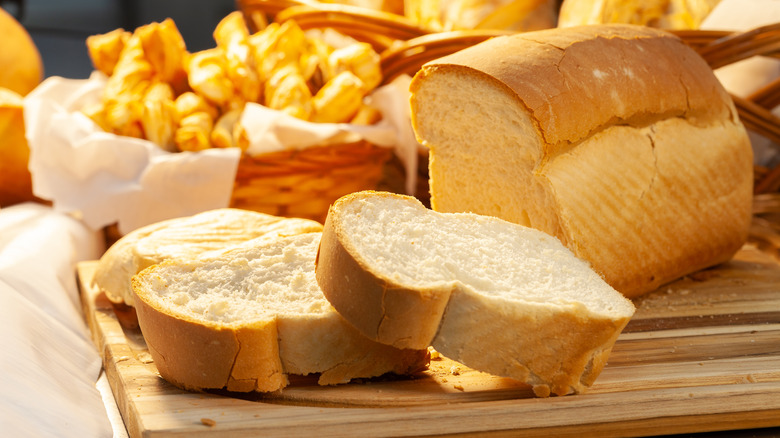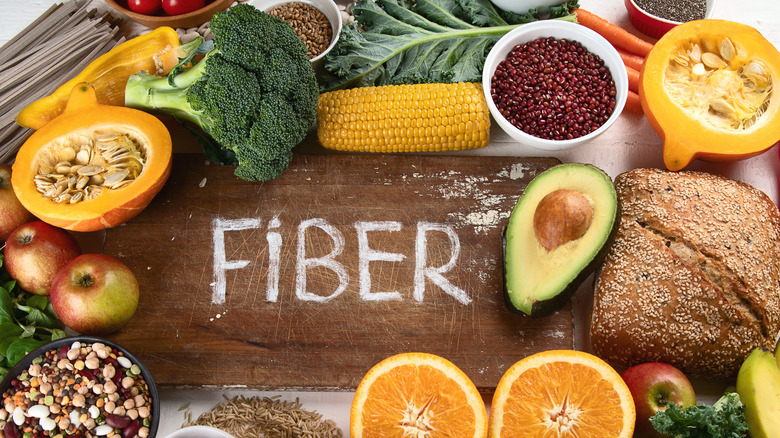The Only Carbohydrate That Won't Spike Your Blood Sugar
Carbohydrates are an essential part of a healthy and well-balanced diet. Your body needs carbohydrates — sugars, starches, and fibers — to function, as they are your body's main source of energy (via Cleveland Clinic). During digestion, most carbohydrates are broken down into sugars, which are absorbed by the bloodstream and used for fuel. However, this sugar absorption can also cause your blood sugar to spike, triggering the release of insulin that, for diabetics, may not allow glucose to be processed properly, per the Cleveland Clinic. Although one type of carbohydrate that is less likely to substantially increase blood sugar levels is dietary fiber.
"Fiber promotes good bowel health, lowers the risk of cancer and heart disease, and also controls your blood sugar in a certain way," Amy Kranick, a registered dietitian and certified diabetes educator at Vanderbilt University Medical Center told Everyday Health. "Fiber doesn't require insulin [to digest], so it isn't counted as part of your carbohydrates." So when you're calculating your daily carbohydrate intake, you can subtract half the grams of dietary fiber from your total carb count (via Everyday Health).
Add more fiber to your diet
If you have type 2 diabetes or are just looking to cut back on sugar, eating more fiber is a great way to help fuel your body without spiking your blood sugar and insulin levels. Since fiber is an indigestible carbohydrate, it can't be broken down into sugars. As a result, eating fiber won't cause your blood sugar to rise considerably (via Prevention). Fortunately, there are a variety of high-fiber foods you can add to your diet to help regulate your blood sugar levels.
Fruits, vegetables, and beans are all high-fiber foods that are also low on the glycemic index. This means fiber foods are much less likely to increase your blood sugar levels and may even block the effects of sugar, especially when eaten before a starchy meal. Some of these foods include carrots, broccoli, cauliflower, asparagus, green beans, berries, apricots, peaches, and tart-tasting apples (via Prevention).


